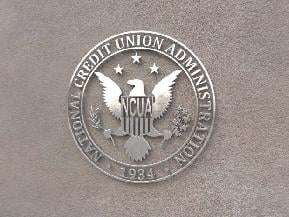At least one company stands to gain from the concern about a possible premium to replenish the NCUSIF.The possibility of a premium increase at the NCUSIF because of the woes of corporate credit unions has caused many more inquiries than usual from state-chartered credit unions to American Share Insurance.“We’ve talked to a substantially larger number of credit unions than we usually do,” said ASI CEO Dennis Adams. “The possibility of an additional [premium] increase is a brutal expense.”He added that his company was met with “considerable interest” at CUNA’s recent Governmental Affairs Conference where they had a booth because “everyone is taking a second look” at ways to cut costs.ASI provides primary deposit insurance to 162 credit unions in nine states on accounts totaling $10.7 billion. Currently, 0.4% of the shares they insure are at institutions with CAMEL 4 ratings, compared with 2.67% for the NCUSIF. Since 1994, 37 credit unions have converted from federal to private insurance and five have gone the other way.The company also provides excess insurance through subsidiary ESI-coverage above what the NCUSIF or ASI offers-to 300 credit unions in 33 states.Adams said that the biggest advantages of private insurance are lower premiums because they can be more selective in whom they insure and the company doesn’t insure corporate credit unions. ASI also insures each account up to $250,000, regardless of how many accounts an individual has at the credit union.Not having corporate credit unions in their insurance pool could be a big competitive advantage in the months ahead.To pay for its corporate credit union rescue plan, the NCUA has said it may have to levy a 56-basis point premium. CUNA has estimated that this would increase the number of credit unions with capital ratio below 6% from 75 to 112, and the number of credit unions with a net worth ratio of more than 9% would be reduced from 7,176 to 6,793.The NCUA said the premium would be necessary to ensure that the fund’s equity ratio stays above the congressionally mandated 1.2%.The premium would be on of top the 1% of deposits that credit unions have to place in the NCUSIF to pay for insurance coverage.ASI charges 1% for CAMEL 1 and 2 institutions and 1.3% for CAMEL 3 institutions.Concerns about the health of insurance funds are not unique to credit unions.The FDIC is experiencing strains as well. That agency’s board recently approved a one-time premium of 20 cents per $100 on deposit. It also raised the quarterly insurance premium that banks have to pay for insurance to between 12 cents and 16 cents per $100 on deposit from the previous 12 cents to 14 cents. The agency expects these increases will raise $27 billion for the insurance fund.Its insurance fund, which had a $19 billion balance in December, has paid out $1.8 billion this year as a result of 16 bank failures. By contrast, there were 25 bank failures in all of 2008, and the fund paid out $33.5 billion.The increases triggered a strong protest from the Independent Community Bankers of America, who objected to having smaller banks pay for the problems caused by larger ones.“One of the most devastating events in American military history was Japan’s sneak attack on Pearl Harbor. Metaphorically, that is exactly what the FDIC did on Friday, February 27, by imposing a crippling 20-cent special assessment (with the possibility of greater assessments on the horizon) on the nation’s 8,000 community banks,” said the association’s President/CEO Camden R. Fine. “Not only are a handful of Wall Street CEOs holding a gun to the taxpayers’ heads, they have the banks of Main Street America looking down the barrel as well.”The American Bankers Association, which represents banks of all sizes, acknowledged that the premium would pose a burden on all banks but said it was needed to maintain the strength of the deposit insurance fund. The association said they hoped the projections for future costs would be revised downward based on subsequent improvements in the economy and the agency will adjust premiums downward.Unlike state-chartered credit unions, banks don’t have the option of getting private insurance in lieu of federal government insurance. Banks can, however, elect to join the Certificate of Deposit Account Registry Service, which allows banks to pool deposits so CD depositors with balances of up to $50 million are eligible for FDIC insurance.–[email protected]
 Search
Search














 Copyright © 2024 ALM Global, LLC. All Rights Reserved.
Copyright © 2024 ALM Global, LLC. All Rights Reserved.